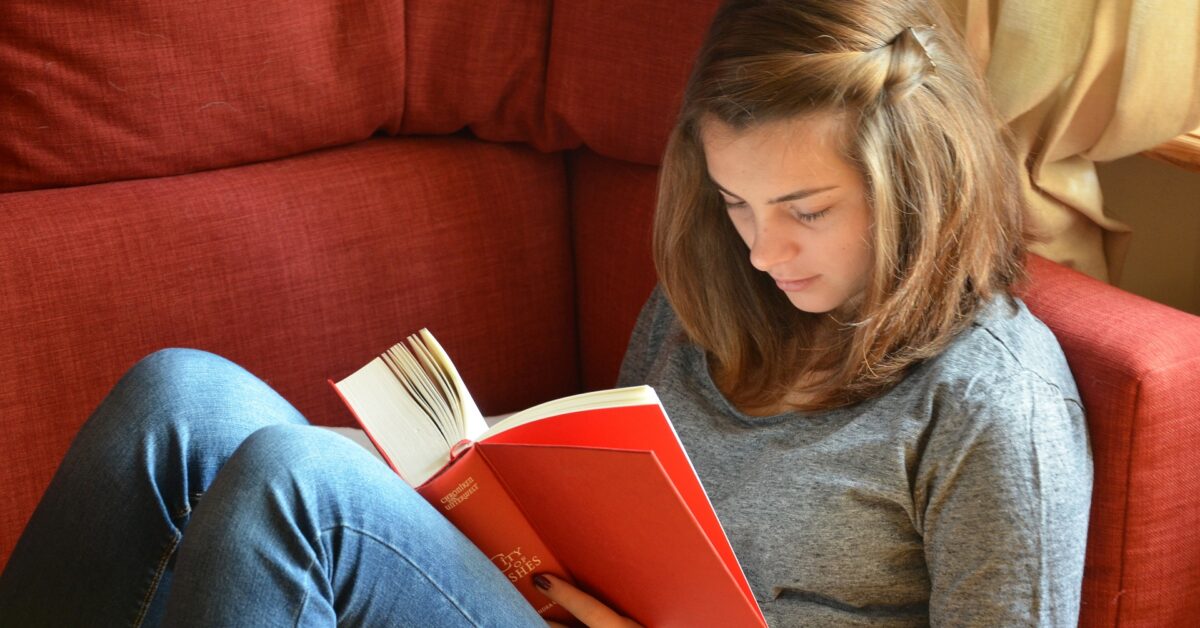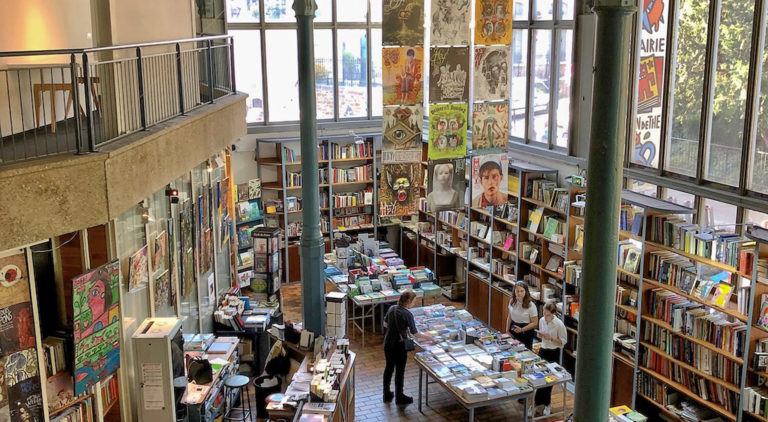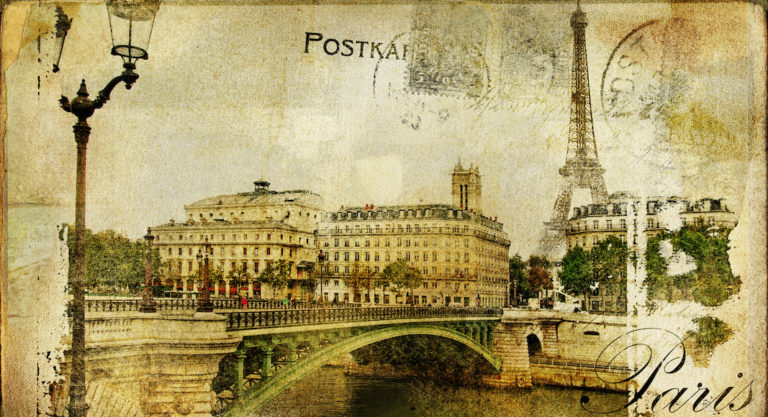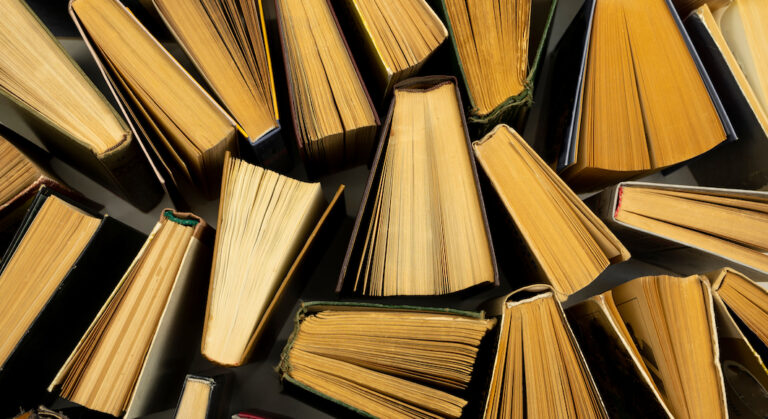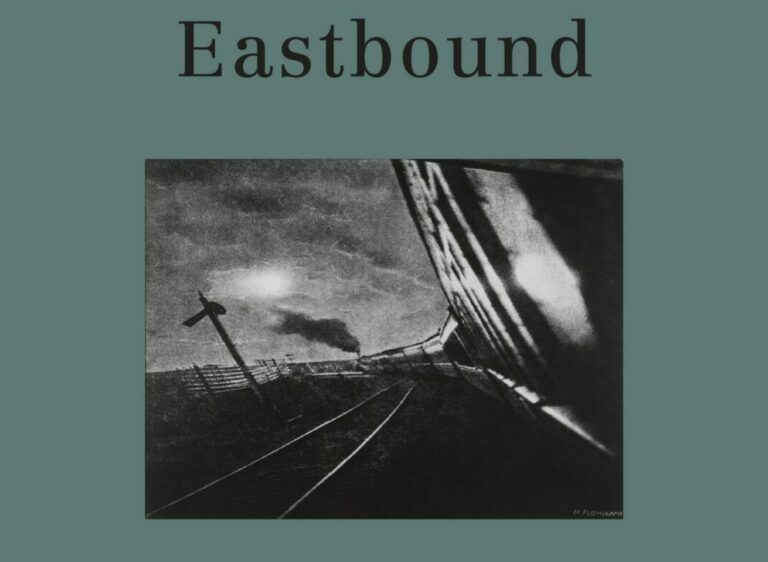Ah, the New York subway. An elbow jabs into your hip as you nestle into a stranger’s armpit, cradling a book under your arm. The train stops suddenly.
“We’re being delayed because of a sick passenger at Jay Street.”
This is life in the “real” New York: sticky, uncomfortable, full of problems. Sometimes you just want to escape to somewhere far away, a place like France where there are absolutely. no. problems. ever.
But much like there’s a “real” New York, there’s a “real” France too — and some brilliant novels that capture its complexity. From hospital waiting rooms in Paris to the backwaters of Picardie, these seven books show a France that’s not found in the guidebooks. So nestle into that subway armpit, and get to reading.
1. En finir avec Eddy Bellegueule, Edouard Louis
The debut novel of 21-year-old (at the time) writer Edouard Louis, En finir avec Eddy Bellegeule takes readers to the “margins” of modern French society. Growing up as a gay man in a poor family in the northern region of Picardie, Eddy confronts intense bullying, abusive parenting, and deeply-held conservative attitudes. The New York Times compared the book to the bestseller that hit American markets just a couple of years later, Hillbilly Elegy.

2. Désorientale, Negar Djavadi
A novel that fuses past and present, East and West, Désorientale begins in the waiting room of an assisted reproductive services clinic at a Paris hospital. An Iranian woman named Kimiâ reflects upon the trajectory that led her to be exiled in France, as well as how the process of integrating into a new culture can be coupled with “disintegration” in another.
3. L’insouciance, Karine Tuil
Karine Tuil’s 10th novel, L’insouciance brings together an unexpected cast of characters — who all find themselves in a state of free fall. An army veteran, back from a tour in Afghanistan; his mistress, a journalist, and her husband, a wealthy businessman; and a French-Ivorian politician are inculpated in a political scandal.
4. Soumission, Michel Houellebecq
Set in 2022, Soumission envisions if France was ruled by a socially conservative Islamist government. The book’s protagonist, François, works as a professor at a public university — until one day he finds himself without a job. France, of course, is not ruled by a socially conservative Islamist government, but the book, written by a controversial and reportedly Islamophobic author and released on the day of the Charlie Hebdo terrorist attack in 2015, parodies an immigration debate that’s taking place not just in France, but in developed countries around the world.

5. Wam, Slimane Kader
Wam is not so much a novel as it is an anthology of French “verlan,” a type of slang formed by reversing the letters and syllables in certain words, enumerated in the form of a story. Protagonist Wam — or “moi” in verlan — and a cast of colorful characters have an eventful night on the town in a banlieue in northern Paris.
6. Ladivine, Marie NDiaye
Author of the prizewinning book Three Powerful Women, NDiaye’s newest novel also follows the lives of three women — and the violence they suffer silently. The winding novel is cross-stitched across the lives of three haunted women, who share a curse passed down for generations. In an era where violence against women is found everywhere, this book is truly part of the canon of #MeToo and #BalanceTonPorc literature.
7. L’art de perdre, Alice Zeniter
A coming-of-age novel that bridges two continents and three generations, L’art de perdre follows Naïma, a young French-Algerian woman, who works in a contemporary art gallery in Paris. After the Bataclan terrorist attacks of November 2015, she begins to look into the mostly unspoken history of French colonialism in Algeria. She learns about her great grandfather Ali and her parents’ arrival to France in 1962 at the end of the French-Algerian war. Throughout this, she also discovers a world altogether forgotten by so many third-generation kids, in France and elsewhere.


